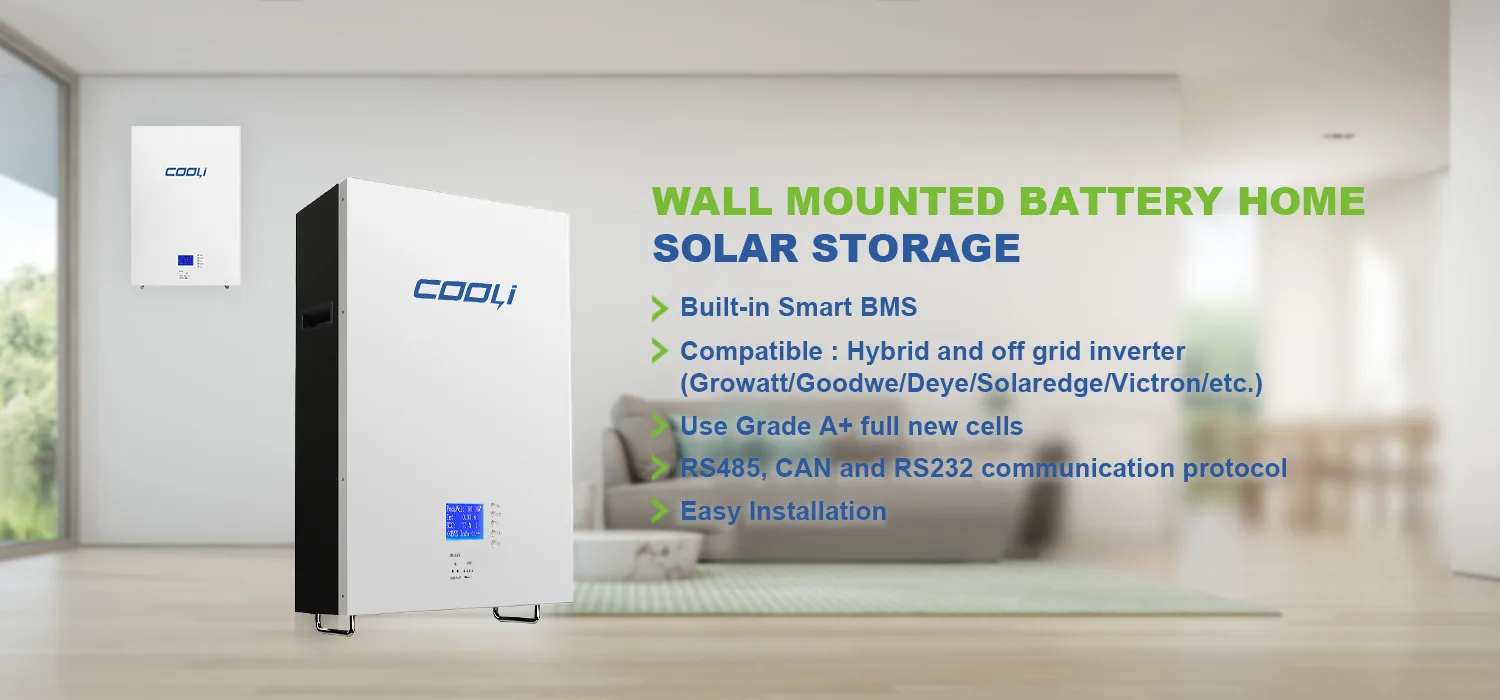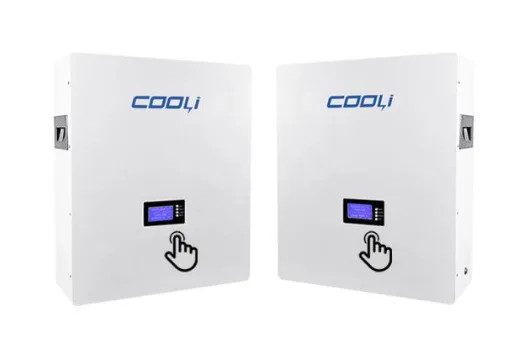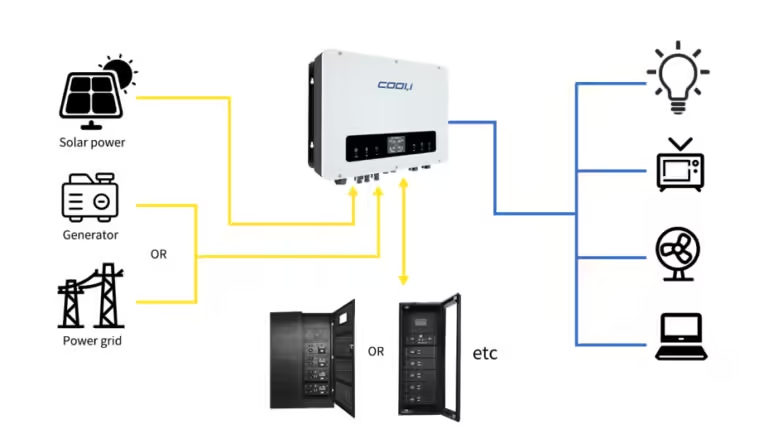Understanding the 51.2V 200Ah 10kWh Battery: Key Questions Answered
51.2V 200Ah 10kWh Battery: Power Capacity, Solar Sizing & Usage Explained
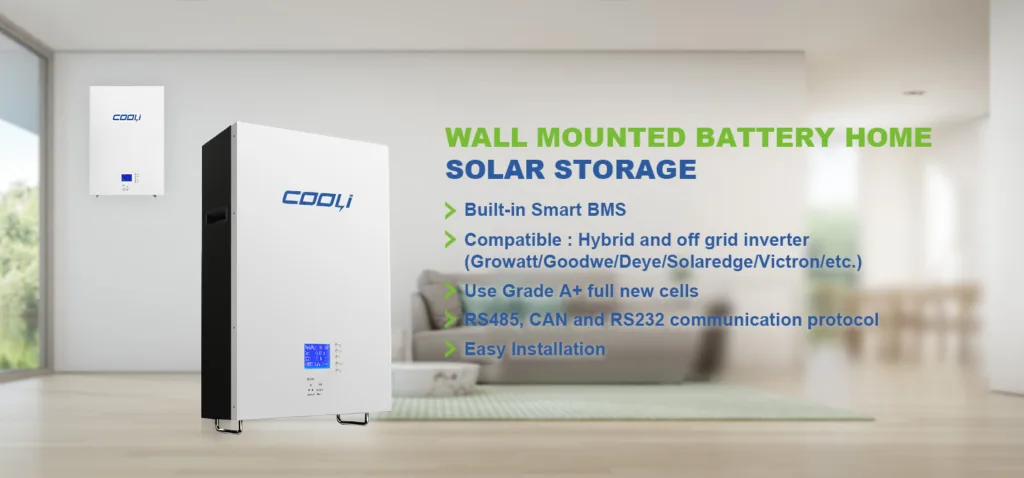
When designing solar systems or off-grid power solutions, batteries like the 51.2V 200Ah 10kWh lithium battery are a popular choice due to their efficiency and capacity. But how do these specs translate to real-world performance? Below, we answer the most common questions about this battery type, backed by data and practical insights.
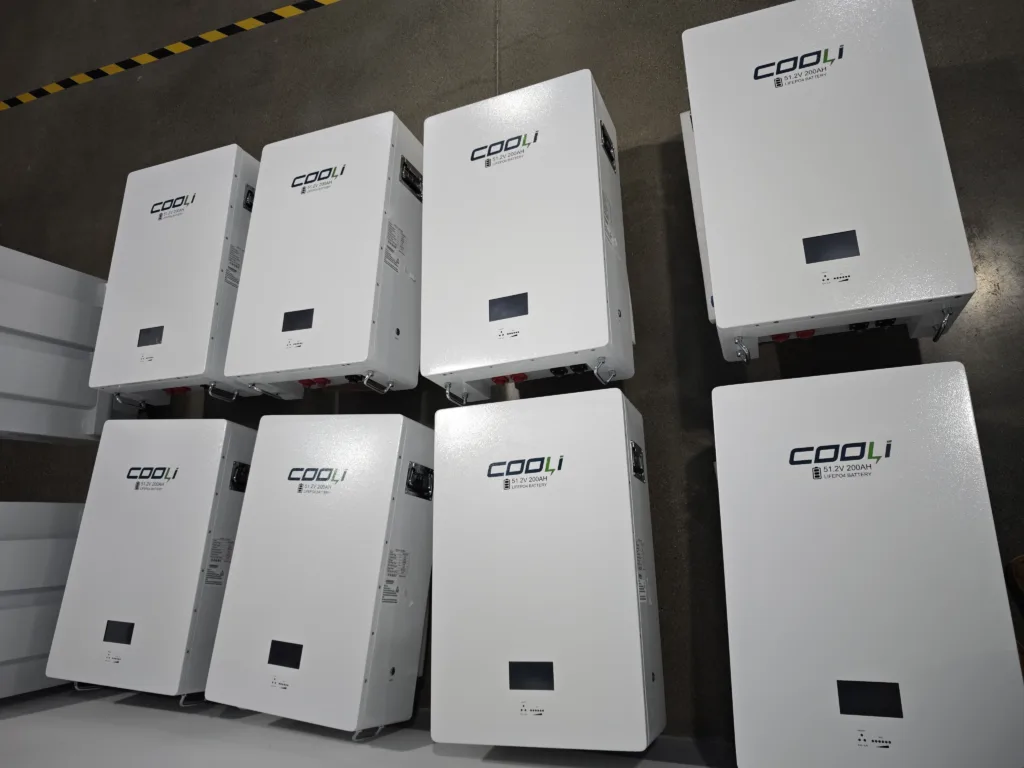
1. How Many kW is a 51.2V 200Ah Battery?
Battery power (kW) depends on voltage (V) and current (A). To calculate instantaneous power:
Power (kW)=
However, this represents peak discharge capability. The battery’s total energy capacity is 10.24 kWh (51.2V × 200Ah = 10,240Wh).
| Model | Nominal Voltage | Nominal Capacity | Energy | Max charge current (Customized) | Size (Customized) | Weight |
| CL-48V 100AH | 48V | 100AH | 4800WH | 50-100A | 610*520*135 mm ±2mm | 46kg |
| CL-48V 150AH | 48V | 150AH | 7200WH | 50-150A | 610*520*240mm ±2mm | 78kg |
| CL-48V 200AH | 48V | 200AH | 9600WH | 50-200A | 610*520*240mm ±2mm | 88kg |
| CL-51.2V 100AH | 51.2V | 100AH | 5120WH | 50-100A | 610*520*135 mm ±2mm | 49kg |
| CL-51.2V 150AH | 51.2V | 150AH | 7680WH | 50-150A | 610*520*240mm ±2mm | 80kg |
| CL-51.2V 200AH | 51.2V | 200AH | 10240WH | 50-200A | 610*520*240mm ±2mm | 91kg |
2. One 200Ah Battery vs. Two 100Ah Batteries: Which is Better?
Option 1: Single 200Ah Battery
- Pros: Simpler installation, reduced wiring, and space-efficient.
- Cons: No redundancy; failure means total system downtime.
Option 2: Two 100Ah Batteries in Parallel
- Pros: Redundancy (if one fails, the other still works), easier to transport, and scalability.
- Cons: Slightly higher cost and more wiring.
Verdict: For critical applications (e.g., off-grid homes), two 100Ah batteries offer reliability. For compact setups, a single 200Ah unit is ideal.
3. What Size Solar Battery is Needed for a 10kW System?
A 10kW solar system generates ~40kWh/day (assuming 4 peak sun hours). To store excess energy:
- Daily Usage: Match the battery to your nightly consumption. A 10kWh battery powers essentials (lights, fridge) for 6–10 hours.
- Backup Goals: For 24-hour coverage, pair a 10kWh battery with solar or opt for 20–30kWh capacity.
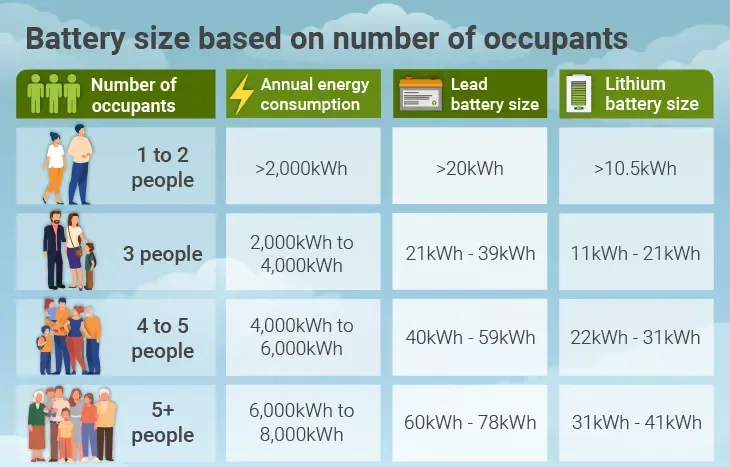
4. How to Convert a 200Ah Battery to kWh?
Use this formula:
kWh=Voltage (V)×Capacity (Ah)/1000
For a 51.2V 200Ah battery:
51.2V×200Ah/1000=10.24 kWh (before accounting for efficiency losses)
Factoring in 90% inverter efficiency, usable energy drops to ~9.2 kWh.
| 51.2V Wall Mounted Battery | |||
| Model | 51.2V100AH | 51.2V150AH | 51.2V200AH |
| Energy | 5120WH | 7680WH | 10240WH |
| Months Self Discharge | <3% | ||
| Efficiency of charge | 100%@0.2C | ||
| Efficiency of Discharge | 96-99%@1C | ||
| Continuous Discharge Current (Customzied) | 50-200A (Customzied) | ||
| Suggest charge current (Customzied) | 20A | 30A | 40A |
| Max Charge Current (Customzied) | 50A-200A(Customized) | ||
| Charge Cut-Off Voltage | 59.2V±0.2V | ||
| Discharge Cut-Off Voltage | 40V | ||
| Cycle Life | ≥6000 cycles@1C 90% DOD | ||
| Cells | Grade A | ||
|---|---|---|---|
| Case | Metal Case | ||
| Dimensions | 610*520*135 mm | 610*520*240 mm | 610*520*240 mm |
| Weight | 46kg | 78KG | 88kg |
| Terminal(customized) | 100-200A(Customized) | ||
| Protocol(customized) | RS485/RS232/CAN(Customized) | ||
5. Can a 200Ah Battery Power a Fridge?
Yes, but runtime depends on:
- Fridge Consumption: A 150W fridge uses ~1.5kWh/day.
- Battery Usable Capacity: A 10kWh battery (80% depth of discharge) = 8kWh usable.
Runtime=8kWh/1.5kWh/day≈5.3 days
Result: A 200Ah battery can power a fridge for 5+ days without solar input.
6. How Long Will a 10kWh Battery Last?
It depends on your load:
| Load (kW) | Runtime (Hours) |
|---|---|
| 1 kW | 8–10 hours |
| 2 kW | 4–5 hours |
| 5 kW | 1.6–2 hours |
For a typical household using 30kWh/day, a 10kWh battery covers ~8 hours of essential loads (e.g., lights, Wi-Fi, fridge).
Why Choose a 51.2V 200Ah 10kWh Battery?
- High Efficiency: Lithium batteries offer >95% round-trip efficiency.
- Long Lifespan: 3,000–6,000 cycles at 80% DoD.
- Scalability: Easily expanded by adding more units in parallel.
Final Tips
- Pair your battery with a compatible inverter (48V systems are standard for 51.2V batteries).
- For solar systems, size your battery bank to cover 1–2 days of autonomy.
- Monitor performance to maximize lifespan and ROI.
By understanding these key metrics, you can optimize your energy storage setup for reliability and cost-effectiveness. The 51.2V 200Ah 10kWh battery strikes a balance between capacity and versatility, making it a top choice for residential and commercial applications.
Need a customized solution? Consult a solar expert to tailor your system to your energy needs!
5kWh LiFePO4 Battery in Vietnam 10kWh Energy Storage Solutions for Yemen 15kWh Solar Battery 24V vs 48V Lithium Battery 48V 300Ah kWh 48V Lithium Batteries 51.2V 200Ah 10kWh Battery 150kW Solar System 300Ah 51.2V Floor Standing Battery 300Ah LiFePO4 battery Battery IP Ratings battery manufacturer in China Best LiFePO4 Batteries Engineered for Middle East Desert Best Lithium Battery in Pakistan Bulk Buy Home ESS China’s Top Battery Manufacturer Custom Lithium Batteries Depth of Discharge (DoD) energy storage battery Grade A Battery Home Batteries for Dutch Families home energy storage Home Energy Storage Batteries Lead-Acid Battery Lead-Acid to Lithium LiFePO4 batteries LiFePO4 Batteries in Australia LiFePO4 Batteries in the Philippines LifePo4 battery LifePO4 Battery Technology LiFePO4 Battery vs. Lithium-Ion LiFePO4 disadvantages Lithium Batteries in Solar Systems Lithium Battery Manufacturer Lithium Battery Safety Tips lithium ion battery Market Trends Revolutionize Business Power with Customizable BESS Scalable BESS Solutions for Industry Solar Batteries in Syria Solar Panel solar system Wall-Mounted Battery Wall-Mounted Lithium Batteries Wall vs Rack Batteries

